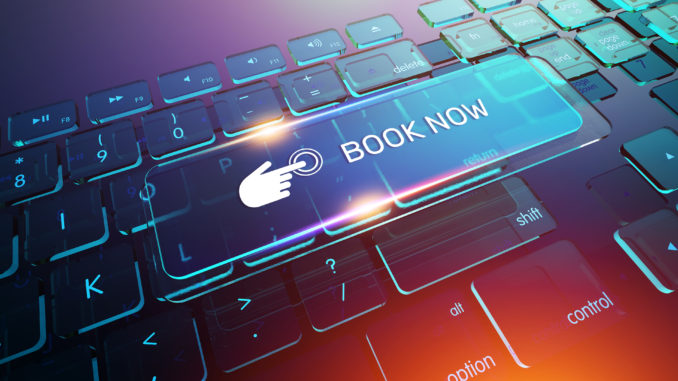
By Larry Mogelonsky, Principal of Hotel Mogel Consulting Limited - 7.25.2019
Following the latest iteration of HITEC in Minneapolis this year, one subtle trend that has crept into our collective hoteliers’ consciousness is that we now work in the accommodations business instead of the narrower hotel business. This change is remarkable because it appears as though we have simply accepted that alternate lodgings, as led by Airbnb, and any other internet-based service firm (IBSF) are here to stay.
Significantly, many accept that there’s enough pie to go around and that the accommodations industry has more than enough customers to feed both traditional hotels as well as home sharing platforms. Are we all certain of this, though? If you were a hotel developer, would you bet tens of millions of dollars on this being true?
My take on this is that when the economy is healthy, indeed there’s plenty to feed all accommodations of all tiers and classifications. But when the next recession inevitably hits, you had better be prepared.
While there are numerous improvements you can make to your operations to help insulate your hotel from any potential disasters, for today’s purposes, let’s focus on your top-of-funnel marketing tools, more specifically the booking engine which is critical to get guests to experience your brand in full to thereby make the best monetary decision with you.
Not only does booking direct mean no cuts given to external channels, but it can also allow you to upsell, upgrade and package to thereby capture the most possible revenue from each customer.
This is critical nowadays because each incremental spend will ensure a better experience for the guest and an increased likeliness of positive word of mouth and loyalty – two near-priceless qualities to have when demand dips. Aside from any rich media that you add to your booking engine to give it a visual storytelling makeover, let’s examine some of the inner workings of packaging, upgrading to suites and selecting an individual rooms to see how they can help your top line.
Packaging Is Your Best Friend
While most of your guestrooms won’t be able to compete with home sharing in terms of providing apartments with full kitchens embedded in neighborhoods not zoned for short-term rentals, a core advantage for hotels is that we have staff. Yes, we have people who excel at service delivery and ensuring that guests’ needs are handled for them.
So, while your lower tier double queen may look somewhat boring when compared against a newly remodeled loft on Airbnb Plus, where you can fight back is through offering guests fantastic deals for add-on services, amenities or activities to make their time with you exceptional. Free breakfast is perhaps the simplest of these, but you can expand this out to include a full gourmet getaway, spa vouchers, in-room arrival gifts, VIP access or offsite experiences through third parties.
The key here is often that your user interface is cluttered and cumbersome, so your add-ons can’t be fully appreciated nor is the true value being conveyed. To this latter point, for guests to properly window shop and be enticed by your bundles, they need to be shown how much they are saving.
Again, modern booking software can come to the rescue by resuscitating the look and feel of your reservation portal so that users don’t get a headache squinting to read all the details and so they can actually have some fun browsing through all the options you’ve built into the system. An important caveat here is that in order for you to amp up your booking engine with lots of packages and extras, you have to first create those extras – a task that’s far more encompassing than just revenue management.
Select And Upgrade
Where I foresee booking engines making big gains in the coming year is both in their ability to effectively convince customers into upgrading their initial purchases so you can better fill your premium tier product as well as in facilitating individual room selections (for an incremental fee if you so desire) under the guise of an attribute-based sales (ABS) model.
Coupled with your excellent service, your suites and villas will undoubtedly give guests a far better experience over some alternate lodging. But what’s lacking is an effective means by which to tell your inventory’s story via ABS. Sometimes for this we’re just as guilty as the OTAs by displaying our cheapest rooms at the top of the search results page, subconsciously priming customers to select exactly those and not consider much else.
To remedy this, you might try reorienting how product tiers are organized during an inquiry or look for alternate ways to get guests interested in your suites. To better understand what simple initiatives you can take, look no further than companies like Nor1, which has a myriad of solutions designed to, for instance, give you better guest intelligence or increase merchandising sales at check-in.
Another great way to go about this is by letting guests book a standard room, and then sending them an invitation to virtually tour your suites via a confirmation email, either immediately after booking or in the days afterwards. Even though this is a staple of the airline industry, it is still an emergent niche for hotels, with companies like Koridor able to manage these follow-up correspondences via private portals that let guests view then select individual rooms or upgrade to something fancier.
To circumvent any PMS integration issues, you might also recruit your email marketing providers to send out these prearrival messages to inform guests about the wealth of other possibilities that go above and beyond your cheapest room. These can always be connected to private landing pages on your website or direct guests to call a hotline to let your reservations team do the upselling.
 One of the world’s most published writers in hospitality, Larry Mogelonsky is the principal of Hotel Mogel Consulting Limited, a Toronto-based consulting practice. His experience encompasses hotel properties around the world, both branded and independent, and ranging from luxury and boutique to select-service. Larry is also on several boards for companies focused on hotel technology. His work includes five books, “Are You an Ostrich or a Llama?” (2012), “Llamas Rule” (2013), “Hotel Llama” (2015), “The Llama is Inn” (2017) and “The Hotel Mogel” (2018). You can reach Larry at [email protected] to discuss hotel business challenges or to book speaking.
One of the world’s most published writers in hospitality, Larry Mogelonsky is the principal of Hotel Mogel Consulting Limited, a Toronto-based consulting practice. His experience encompasses hotel properties around the world, both branded and independent, and ranging from luxury and boutique to select-service. Larry is also on several boards for companies focused on hotel technology. His work includes five books, “Are You an Ostrich or a Llama?” (2012), “Llamas Rule” (2013), “Hotel Llama” (2015), “The Llama is Inn” (2017) and “The Hotel Mogel” (2018). You can reach Larry at [email protected] to discuss hotel business challenges or to book speaking.
This article may not be reproduced without the expressed permission of the author.
Are you an industry thought leader with a point of view on hotel technology that you would like to share with our readers? If so, we invite you to review our editorial guidelines and submit your article for publishing consideration.
